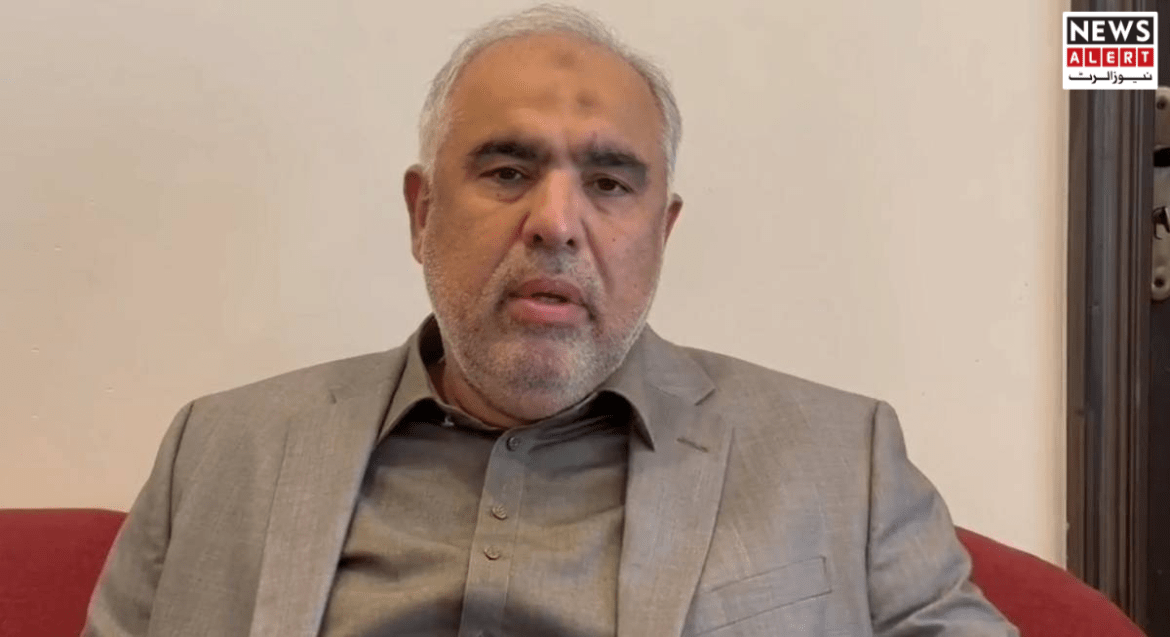PTI Vows to Reverse Recent Constitutional Amendments
Senior Pakistan Tehreek-e-Insaf (PTI) leader and former Speaker of the National Assembly, Asad Qaiser, declared that former prime minister and PTI founder Imran Khan will repeal the 26th and 27th constitutional amendments once he returns to office.
Speaking to journalists on Monday, Qaiser argued that the current parliament lacks the authority to pass major legislation. He claimed that the amendments approved under the present government cannot be considered legitimate.
His remarks come amid heightened political friction, with opposition parties questioning the legislative process and the government defending the amendments as necessary reforms.
Criticism of Legislative Process
Qaiser strongly criticised how lawmakers passed the amendments. He questioned whether constitutional changes should happen in such a haphazard manner, adding that the government often shifts decisions abruptly.
Is this how the constitution is amended? he asked. First, they agree on one thing, then suddenly bring forward the opposite proposal.
The former Speaker’s comments highlight a broader debate in Pakistan about the pace and style of constitutional reform. Analysts note that major amendments often spark controversy, especially during political instability.
Targeting Nawaz Sharif’s Parliamentary Attendance
Qaiser also criticised former prime minister and Pakistan Muslim League-Nawaz (PML-N) leader Nawaz Sharif. He suggested that Sharif’s slogan of Vote ko izzat do (honour the vote) clashes with his limited participation in parliamentary sessions.
Despite championing democracy and respect for the vote, Nawaz Sharif rarely attends assembly meetings, Qaiser said. Yet he was suddenly present yesterday, which raises questions.
Sharif has long argued that democratic institutions must strengthen. However, his political rivals often criticise his attendance record, especially during key legislative debates.
Support for Judges Who Resigned
The PTI leader praised Supreme Court judges Justice Mansoor Ali Shah and Justice Athar Minallah for resigning in protest. Although Qaiser did not elaborate on the circumstances, observers see their resignations as a sign of judicial unease over political pressures.
He urged bar associations and labour unions to stand with the judges, calling their decisions acts of principle during a turbulent moment for Pakistan’s judiciary.
Judicial independence remains a contentious issue in the country. Over the years, several judges have complained about external interference, prompting calls for stronger separation of powers.
PTI to Convene Key Strategy Meeting
Qaiser announced that PTI will hold a major internal meeting soon to determine its next political steps. The session will focus on organisational restructuring, legal challenges, and preparations for future elections.
Since Imran Khan’s removal from office in 2022 and subsequent incarceration on various charges, PTI’s political strategy has faced significant obstacles. The party maintains that many of the cases against its leadership have political motivations.
Amendments Passed Despite Opposition Protests
The National Assembly and Senate recently approved the 27th Constitutional Amendment with a two-thirds majority. Lawmakers also passed the 26th Amendment earlier under similar circumstances.
Opposition lawmakers staged loud protests during the voting session, chanting slogans and accusing the government of forcing through critical changes without proper consultation. Government members insisted that the amendments were vital and followed constitutional procedures.
Parliamentary records show that two-thirds support is required for any constitutional amendment in Pakistan. While the government achieved the necessary numbers, the opposition argues that lawmakers bypassed transparency and political consensus.
Broader Political Implications
The dispute over the amendments has deepened existing divisions between the government and opposition. It has also raised questions about caretaker setups, judicial oversight, and institutional balance.
Political analysts suggest that if PTI returns to power and reverses the amendments, Pakistan could face another round of legislative confrontation. This could slow governance and delay economic reforms.
For now, the political landscape remains highly polarised. Major parties are positioning themselves for the next electoral cycle, while public debate sharpens around constitutional authority and democratic accountability.















